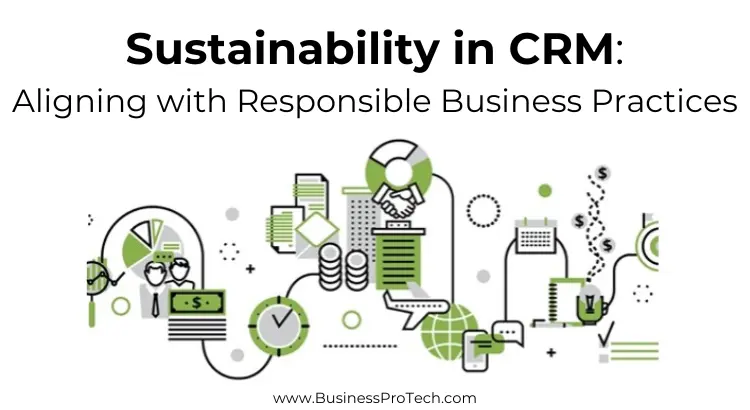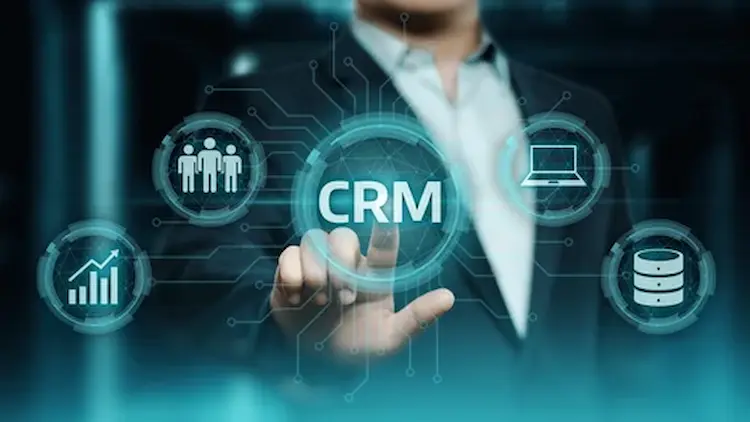In a world where sustainability is no longer just a buzzword but a moral, ethical, and economic imperative, businesses across the spectrum are realizing the value of integrating environmental and social responsibility into their core operations.
The customer relationship management (CRM) sector, which forms the bedrock of customer-centric business models, is no exception. This post explores how the CRM industry adapts to more sustainable practices and how these changes benefit the environment and enhance customer engagement and brand reputation.

The Evolving Landscape of CRM and Sustainability
For years, the primary focus of CRM has been on streamlining business processes, improving customer retention, and driving sales. However, as global environmental and social issues have emerged, the CRM industry is significantly transforming. Companies are becoming increasingly aware of their ecological footprint and the social impact of their operations, which is reflected in their CRM strategies.
Green CRM:
Some CRMs have evolved to provide ‘Green CRM’ features, allowing businesses to track and manage their sustainability efforts within customer-related activities. Green CRM platforms also grant insights into customer preferences regarding sustainable products and practices, tailoring the customer experience.
How Sustainable CRM Practices Benefit Businesses
Adopting sustainable CRM practices doesn’t just meet corporate social responsibility (CSR) goals; it also brings tangible benefits to the businesses implementing them.
- Cost savings: Practices such as paperless operation, energy-efficient servers, and optimized supply chains result in significant cost savings.
- Enhanced customer loyalty: Customers are more likely to be loyal to brands that share their values. Sustainable CRM initiatives demonstrate a company’s commitment to environmental and social progress, resonating with conscious consumers.
- Improved brand reputation: A business that operates sustainably tends to build a positive image in consumers’ minds, leading to more substantial brand equity.
Practical Steps for Implementing Sustainable CRM

Here are actionable steps that businesses can take to start aligning their CRM practices with sustainability principles:
- Assess current impact: Conduct an environmental and social impact assessment of your CRM operations to identify areas for improvement.
- Educate and involve employees: Sustainability in CRM begins with employee awareness and engagement https://www.creatio.com/glossary/customer-onboarding-in-banking. Companies should champion sustainability goals and ensure their workforce is informed and involved.
- Integrate sustainability KPIs: Establish key performance indicators (KPIs) related to sustainability within your CRM system, ensuring they are given the same weight as traditional business metrics.
- Leverage technology: Use CRM technology to automate and streamline sustainable processes, such as using renewable energy for data centers and developing sustainable product lines.
Challenges and Considerations in Sustainable CRM
While the benefits are clear, businesses adopting sustainable CRM practices face various challenges.
- Data security: Moving to cloud-based CRM systems can raise concerns about data security. Companies must ensure their sustainability initiatives don’t compromise customers’ privacy and data security.
- Transition costs: Implementing sustainable CRM practices may entail significant upfront costs, particularly upgrading technology and retraining staff.
- Long-term focus: Sustainability isn’t a one-off effort but a long-term commitment. It requires ongoing investment and a cultural shift within the organization.
The Future of CRM and its Role in a Sustainable Economy
The future of CRM lies in its ability to further integrate sustainability into its operations and offerings. As the global economy continues to shift towards one that values sustainability, CRMs will play a crucial role in enabling businesses to serve their customers in an environmentally and socially responsible manner.
Conclusion
Sustainability in CRM is not just about doing the right thing for the planet and society—it’s also about creating sustainable, long-term success for your business.
Integrating responsible business practices into your CRM strategies can foster deeper customer relationships, achieve operational excellence, and contribute to a more sustainable world. The time to act is now, and the rewards are there for businesses ready to commit.